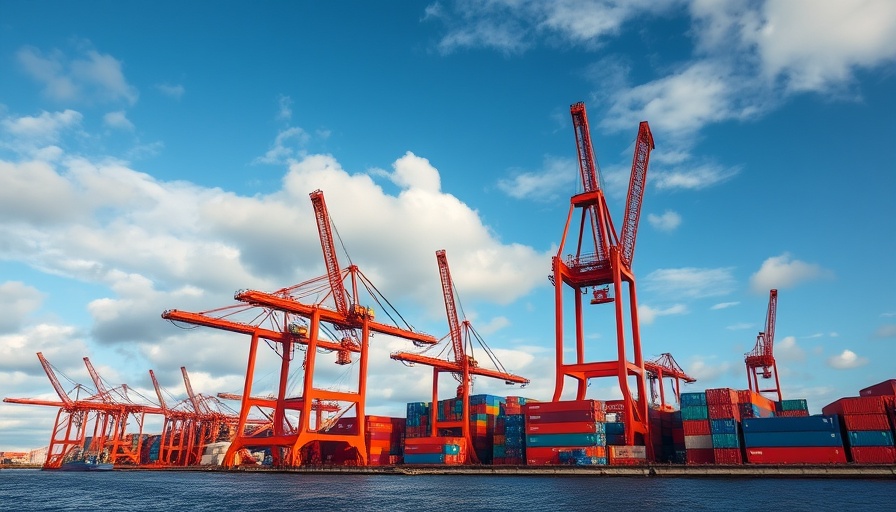
How Tariffs Reshape California’s Supply Chain
The ongoing trade war initiated by former President Donald Trump has profoundly impacted California’s ports, leading to a startling decline in cargo traffic that has ramifications extending far beyond the docks. The reality is stark; the port activities are witnessing more cancellations than during the peak of the COVID-19 pandemic. Ports of Los Angeles and Long Beach, crucial arteries for trade, are feeling the weight of these changes as they grapple with a significant decrease in vessel calls.
A Hard-Hit Economy: Shipping Disruptions at California's Ports
In May 2025, the Port of Long Beach reported a shocking rise in vessel call cancellations. With only 80 ships expected to arrive, a staggering 17 cancellations marked the month, illustrating a shift that has left the port reeling. The overall trend of decreases in shipping activity signifies more than just numbers; it represents a chilling effect on jobs and local economies reliant on this activity. More than just truck drivers, workers in warehouses, retail, and all the way to dockside are feeling the repercussions.
Understanding the Workforce Impact
The economic strain is acute for California’s longshore workers. Unemployment among workers has surged as a direct result of fluctuating tariffs and inconsistent cargo flows. Mario Cordero, CEO of the Port of Long Beach, points to dwindling workforce activity as an immediate concern, with many workers unable to secure their usual hours. Last year, the state’s ports handled robust activity, but the numbers are dwindling this year due to uncertainty surrounding tariff maneuvers.
Community ties are fraying as local economies suffer. Gary Herrera, from the International Longshore Workers Union, acknowledges that the vibrations of this economic disturbance are felt throughout the community. When workers’ hours decrease, the ripple effect extends to less spending in local shops and services—the very fabric of towns, such as those surrounding Bakersfield.
The Broader Context of Economic Challenges
Challenges faced by port workers echo challenges faced by many business owners across California's trade sectors. Uncertain policies can deter business actions, with many preferring to wait rather than risk unfavorable impacts. Economic caution reigns when businesses must predict long-term moves not just for their company but also for their communities.
Statistics That Tell a Story
Data from port authorities reveals a grim forecast. Since the tariffs began, container traffic has plummeted by an alarming 15% at the Port of Oakland alone. This isn’t just about numbers; it’s about livelihoods, local business survival, and community integrity.
Future Predictions: Shipping Trends Post-Trade War
What does the future hold for California's ports? Experts offer varying insights, with some suggesting that normalization could take years. Others believe that a shift toward more predictable trade relationships could reinvigorate the sector. However, with tariffs still in the air, many businesses are hedging their bets—waiting for clearer signals before they re-engage in full-scale import activities.
Concluding Thoughts: A Call for Action
California’s port workers and the communities that thrive off these vital connections warrant more than just acknowledgment; they need action. Stakeholders must rally to push for policy changes that stabilize port traffic and ultimately shape a more resilient economic future in the face of global trade challenges.
As we move forward, let us pay attention to these nuanced economic shifts and advocate for policies that not only create jobs but also fortify community ties throughout our beautiful state of California.
By engaging with our local representatives, participating in discussions, or simply supporting local businesses, we can start to reshape the future of trade in California today.
 Add Row
Add Row  Add
Add 



Write A Comment